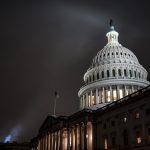A plan to give prominence to Australian networks over international streaming giants and other non-Australian channels on “smart TVs” has been shot down by the likes of Telstra, Samsung, Sony and Google.
The proposal, known as the “prominence framework”, is being pushed by federal Communications Minister Michelle Rowland.
Ms Rowland’s reform could mean Australian TV apps, like ABC iView, 7Plus, 10Play or 9Now, would be positioned higher up on a smart TV’s menu as standard, in front of international competitors.
Ms Rowland said the significant uptake in smart TVs and connected devices in Australia showed the challenges facing existing Australian TV services.
“The Albanese Government recognises that Australian TV providers are operating in an increasingly crowded field,” she said.
“We want to ensure that we support their prominence on connected smart TVs so Australian audiences can easily enjoy nationally significant local content.
“Enshrining access to local and original TV content will be a core principle in this new framework.”
A recent survey found while more Australians are watching content through streaming services, commercial TV remains the most popular way to get the news.
However, not everyone is pleased with the government’s proposed plans.
Consumer choice
The main argument against the government’s proposed framework was that it should not impede on a consumer’s choice.
“User choice should be respected and promoted. The regulatory framework should focus on ways to offer opportunities to consumers that they may or may not take up – as opposed to forcing particular choices on consumers,” Google stated, in a submission to the government.
“It is imperative that providers are able to respond to user intent and needs. Any regulatory framework should not make it harder for users to find and consume the content they wish to watch. When a person searches for something, the results should be the best attempt at responding to that request – without any overlay of regulated prominence.”
Telstra is also opposed to the legislation, saying it would be “complex to implement and difficult to enforce”.
The telco noted its history of working with free-to-air broadcasters and local content providers, like Foxtel and Stan, to ensure Australian content is readily available and distributed.
However, Telstra raised concerns that the framework is “a blunt instrument that is not necessarily capable of solving the government’s concerns related to the availability and consumption of Australian content”.
Telstra said it was “unconvinced” the prominence framework will lead to more people viewing Australian content, but instead will lead to imposing cost on the manufacturers of regulated TV devices, which will then be passed on to consumers.
The Consumer Electronics Suppliers Association (CESA), whose members include the likes of Panasonic, Samsung and Sony, also flagged concerns that the legislation could increase the cost of the consumer.
CESA says regulation around positioning was “problematic” for many reasons, such as regulation keeping up with evolving technologies and said positioning does not mean increased viewership
In favour of framework
Free-to-air broadcasters are supportive of regulations that gives prominence to them on smart TVs.
The ABC said in its submission the national broadcaster believes regulator guarantees for the prominence of broadcasters’ services on smart TVs are urgently needed.
“The ABC considers that a robust prominence framework will benefit the Australian broadcast industry and deliver public policy outcomes in a changing media landscape,” their submission stated.
The peak industry body for Australia’s commercial television broadcasters, Free TV Australia, argued that in addition to telling Australian stories and reporting on the news, broadcasters create jobs.
Netflix supports the federal government’s intention to promote competition by making sure Australian broadcasters are on connected devices.
However, the streamer said prominence should remain “competitively neutral”.
“A “must carry” obligation will adequately address the government’s policy objective to ensure the availability of diverse Australian programming,” Netflix said.
“In the context of a thriving market where both streamers and broadcasters are investing in Australian stories, there is no demonstrable need for more prescriptive regulation to ensure Australian content is available to Australian audiences.”
The post Telstra, Google oppose govt’s smart TV reform appeared first on The New Daily.







